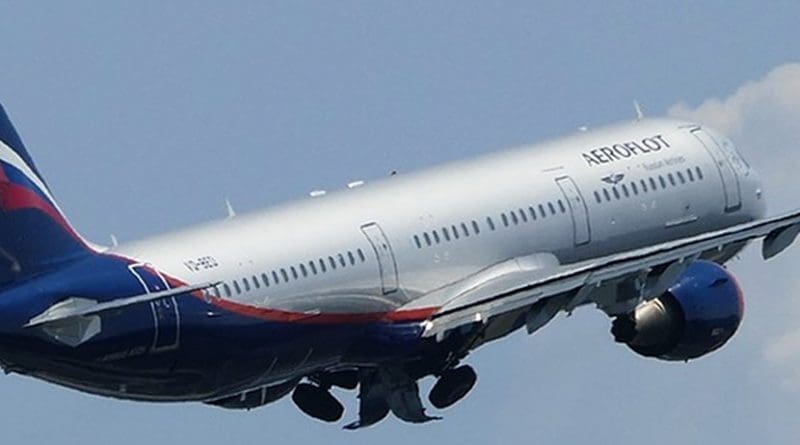Aeroflot To Set Up Four Regional Hubs Outside Of Moscow, Changing Russian Transportation Patterns Forever – OpEd
By Paul Goble
In an indication of what the Kremlin’s move toward the economic regionalization may in fact look like, Aeroflot has announced that it plans to establish four hubs outside of Moscow and to begin flights between and among them and not only via Moscow’s Sheremetyevo as is currently the case.
According to a report in Vedomosti, the four will include St. Petersburg, Sochi, Krasnoyarsk, and a city in the Urals, most likely either Yekaterinburg or Chelyabinsk (vedomosti.ru/business/articles/2018/09/10/780500-aeroflot-haba and thebell.io/aeroflot-potratit-sotni-millionov-dollarov-na-sozdanie-habov-v-regionah/).
The project will cost hundreds of millions of US dollars, the company says; and it will take some years to be completed. But if the Russian “hub” system works as the American one does, it will fundamentally change the relations of other regional cities among themselves and between them and Moscow.
On the one hand, flights to more distant parts of Russia, including Moscow, will under this system go through these hub cities rather than as now going to Moscow and then on to the destinations. That will make these hubs vastly more important than the other cities outside of Moscow.
And on the other, it will mean that people in the regions will look to their regional hub city rather than to Moscow for their transportation needs. That shift in orientation regarding transportation is likely to affect the mental maps people have, reducing the centrality of Moscow and increasing the importance of regions and regional hub cities.
Because the economic and potentially political consequences of this change are so great, the cities of Yekaterinbug and Chelyabinsk are now locked in an intense competition to be Aeroflot’s regional hub in the Urals. The winning city will gain in stature, and the loser is certain to fade (ura.news/articles/1036276172).

